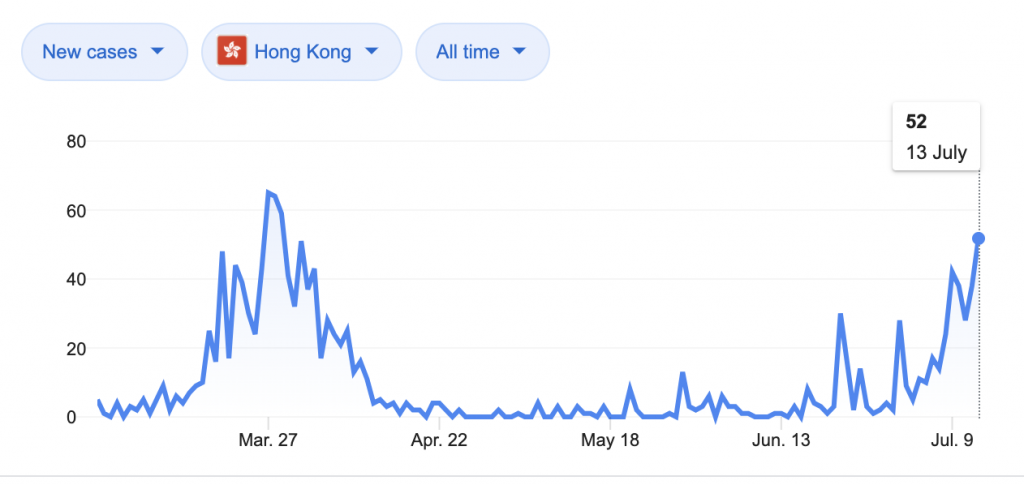A new strain of the deadly coronavirus has been discovered in Hong Kong, and according to medical experts, it is 30% more infectious compared to the onset of the virus outbreak.
The dean of the medical school at the University of Hong Kong, Professor Gabriel Leung has confirmed that there in fact has been a DNA mutation of the virus, after it was first discovered by Florida researchers at the Scripps Research Institute. This highly infections new strain means that each infected individual can spread the virus to four others, as opposed to a previous infection rate of two people as observed in Hong Kong back in March.
On Monday, the city of Hong Kong reported 52 new cases of the coronavirus, with 41 of those cases accounting for local transmission. Since the onset of the virus back in January, there have been a total of 1,500 infections, and 7 deaths. The sudden rise in coronavirus cases is the largest outbreak since the first infection was accounted for back on January 22. According to Professor Leung however, there are most likely an additional 50 to 60 unknown cases of the new strain, suggesting that a second, far more serious outbreak is looming.

In response to the seriousness of the developing situation, Hong Kong Chief Executive Carrie Lam has announced that the city will once again impose restrictions on public gatherings beginning on Wednesday. Schools have also been closed down, and establishments such as recreational centres have been mandated to close down for at least a week. In addition, the government plans to decrease the size of gatherings from 50 to 40 people.
Information for this briefing was found via the Evening Standard and the Financial Times. The author has no securities or affiliations related to this organization. Not a recommendation to buy or sell. Always do additional research and consult a professional before purchasing a security. The author holds no licenses.









